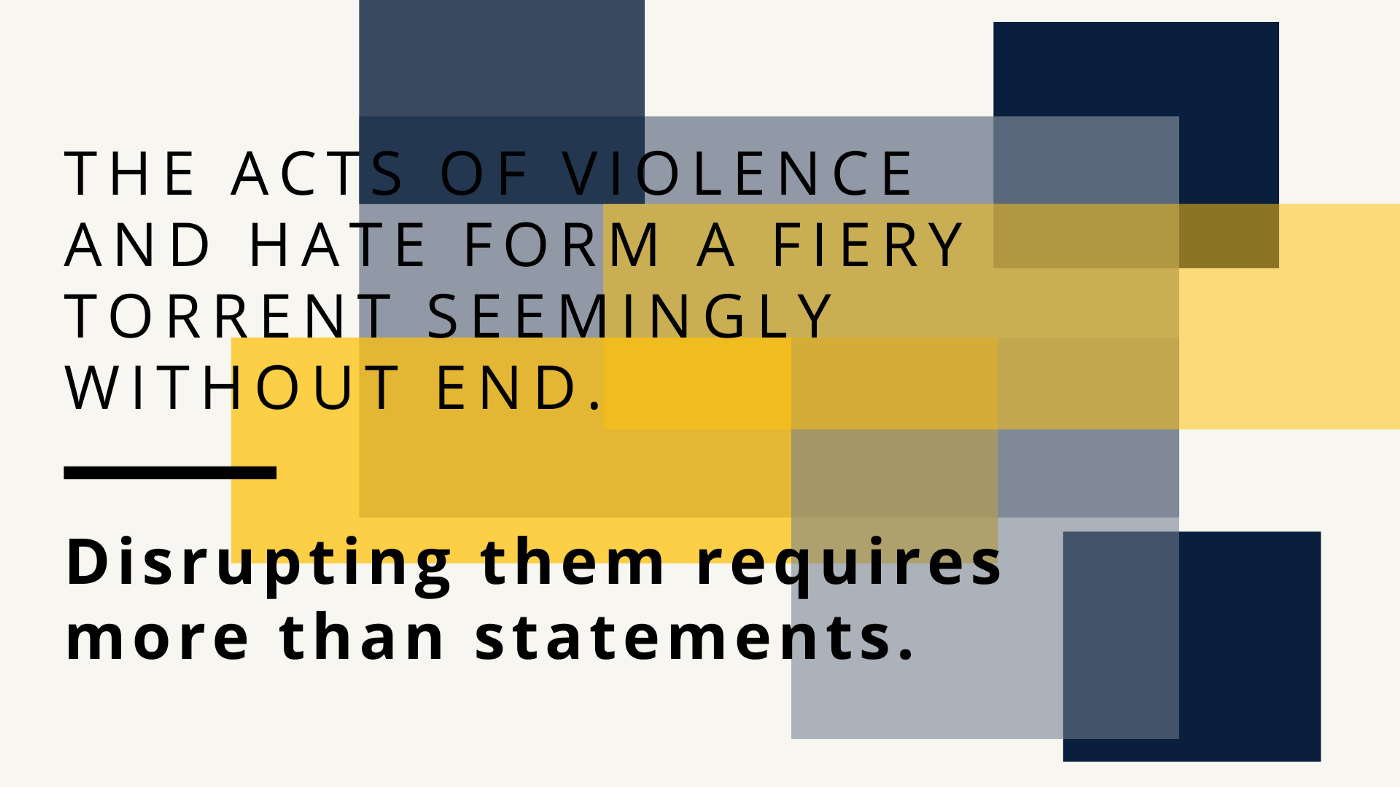We’re getting tired of writing statements, especially statements about mass shootings and white supremacist hate and violence
The acts of violence and hate form a fiery torrent seemingly without end. Disrupting them requires more than statements.

On March 16, Soon Chung Park, Hyun Jung Grant, Suncha Kim, Yong Yue, Delaina Ashley Yaun, Paul Andre Michels, Xiaojie Tan, and Daoyou Feng were brutally murdered by a white man in Atlanta. These killings were one more visible sign of the hate and violence that pervades our world and our nation. Six of the victims were Asian women. Their murders are one more clear sign of the harmful targeting of Asian American people that has been an ongoing and shameful part of U.S. history that has been inflamed over the last year. The media coverage and rapid response statements that followed this atrocity magnified its harm.
Yesterday we learned of another mass shooting in Boulder, Colorado. Ten people were murdered, and the investigation is currently underway.
As all of this is going on, we are witnessing the ongoing aftershocks of the attacks by white mobs that violently disrupted the U.S. Capitol on January 6. We have passed the one-year mark since the murders of Ahmaud Arbery and Breonna Taylor, and watching as jurors are seated to begin the trial of Derek Chauvin who brutally killed George Floyd.
The acts of violence and hate form a fiery torrent seemingly without end.
Although we at TeachingWorks stand in solidarity against hate, violence, and brutality, we are experiencing frustration with statements. We feel a dilemma: Making public statements is necessary, but insufficient and ultimately also beside the real point. The problems we face are deeply rooted in our history, pervade our present, and will persist into our futures. Tackling them requires more than statements. The battle to confront and work to overcome them requires not only recognition, but also determination, perseverance, and collective action. All of us at our organization want to learn more and act more powerfully: How do we work emphatically to disrupt the overall impact of white supremacy while carefully acknowledging and understanding in our actions the particular histories and experiences of Asian Americans, along with Black Americans, Indigenous peoples, Latino/a/e communities, new immigrants, LGBTQIA+ people within these communities, and other historically marginalized groups?
We are painfully aware that haters, killers, and harmers were at one time children in classrooms. As educators, what does this mean for the work we need to learn to do differently? At TeachingWorks, we commit to continue the struggle to contribute to the dismantling of racism through the power of teaching and education. We are determined to learn continuously and to move firmly. We are determined to play our part in the large collective mission to dismantle white supremacy and oppression, to end the hate and violence. And for us, that means continuously finding a way to do more, and do more than making statements.
We recognize the irony in writing about this. We hope these words serve as a springboard for other individuals and organizations who are committed to the struggle for justice and are grappling with the relationship between language, writing, and action. We invite and urgently welcome ways to stand with and act in solidarity with others.
